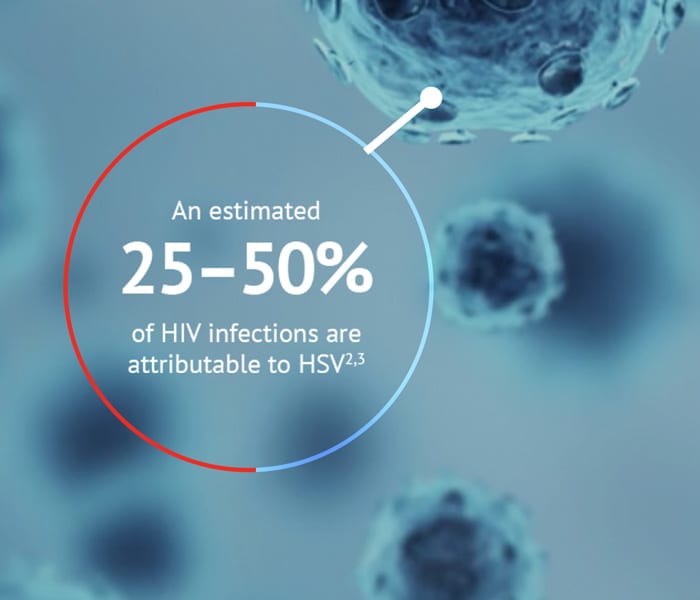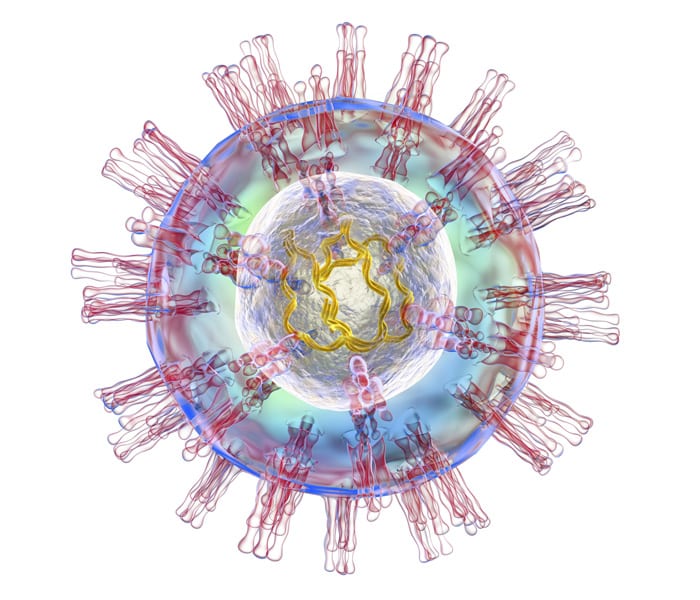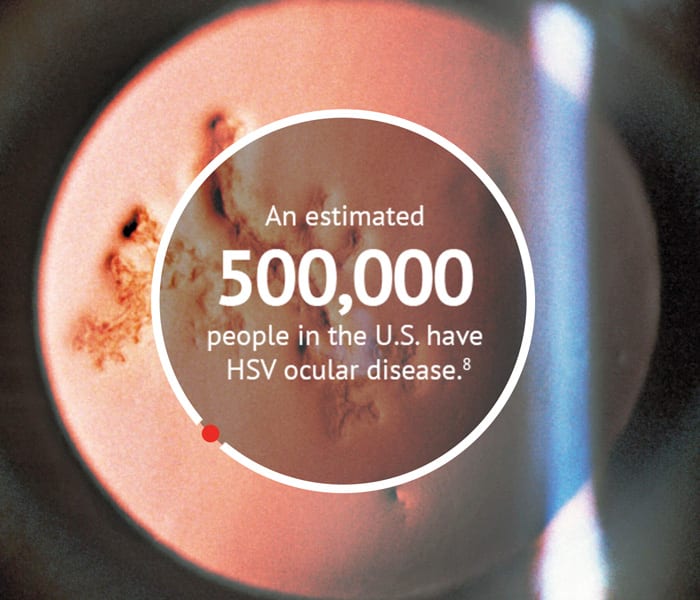
What causes herpes infections?
The herpes simplex virus (HSV), commonly referred to as herpes, is categorized into two types: herpes simplex virus 1 (HSV-1) and herpes simplex virus 2 (HSV-2). HSV-1 is the primary cause of oral herpes, but can also cause genital herpes. HSV-2 is the primary cause of genital herpes. Both HSV-1 and HSV-2 infections are lifelong.


What are the symptoms of herpes?
While some herpes infections are asymptomatic, a significant number of people experience a range of symptoms that vary in frequency and severity. Frequency varies from patient to patient, but symptoms are typically less severe after the first outbreak. The most common symptoms for both types of herpes are painful blisters or ulcers at the infection site. In addition, many patients experience debilitating neuralgia, skin splits, fissures, minor abrasions, erythema, fever, chills and myalgias.
Both viruses are most contagious during a symptomatic outbreak, but they can still be transmitted in the absence of symptoms. Beyond physical symptoms, herpes patients often suffer from social stigma and isolation because the infection is often transmitted sexually.


Neonatal herpes
Neonatal HSV is a potentially devastating herpes simplex virus 1 (HSV-1) or virus 2 (HSV-2), which can lead to serious health problems for the newborn. Although typically acquired at the time of delivery when the risk of transmission from an infected mother is high, as the infant is exposed to the herpes virus in the genital tract during delivery, it can also be transmitted post-delivery.

Up to 85% mortality rate in untreated infants with neonatal herpes1
Infants exposed at birth can suffer from fatal organ damage, serious viral infections, sores, blindness, deafness and seizures2
In the U.S., 77% of pregnant women tested seropositive for HSV-1 and/or HSV-2 over the period 1989–20103


Herpes and HIV
People with compromised immune systems, such as those with advanced HIV infection, are impacted by herpes in several ways.
HSV-1 symptoms can be more severe and recur more frequently for people with HIV4
HSV-2 fuels the HIV epidemic by increasing the risk of acquiring and transmitting a new HIV infection three-fold4



Herpes and ocular disease
Ocular HSV can cause disease in any layer of the eye and is mainly spread by contact. Ocular HSV is associated with a variety of eye diseases, including conjunctivitis, iridocyclitis, acute retinal necrosis and keratitis. Ocular herpes is considered the most common cause of corneal blindness in the U.S.7 Although HSV-1 is typically associated with ocular herpetic disease, HSV-2 has been shown to have implications.


HSV stromal keratitis, a serious viral infection of the cornea caused by HSV, is an important cause of infectious blindness in the developing world, mainly due to stromal opacification, and occurs more commonly during recurrences of infection. After an initial episode, the reoccurrence rate of ocular herpes is approximately


and the risk continues to increase with the number of occurrences. Proven triggers for recurrence include UV light, fever and refractive surgery.8


HSV keratitis is considered an important cause of infectious blindness worldwide9
1.5 million people worldwide are suffering with HSV keratitis10
An estimated 500,000 people in the U.S. have HSV ocular disease, with 50,000 new cases of severe monocular visual impairment or blindness diagnosed each year10

Herpes and Alzheimer’s
- Strong evidence has emerged…that HSV-1 is a major risk for Alzheimer’s disease11
- Patients with HSV infections may have a 2.56-fold increased risk of developing dementia12
- Our results are in agreement with and supports the findings that primary HSV-1 infection, in some individuals, may decades later lead to neural damage that promote or contribute to neurodegenerative disorders13
- There may exist a window of opportunity for treating HSV-1 infections prior to the time they lead to irreversible damage to key cortical networks leading to development of cognitive deficits. Irreversible damage to key cortical networks could not be ameliorated by antiviral therapies13
To learn more about herpes, who it affects, and how it is diagnosed and treated, follow these helpful links.